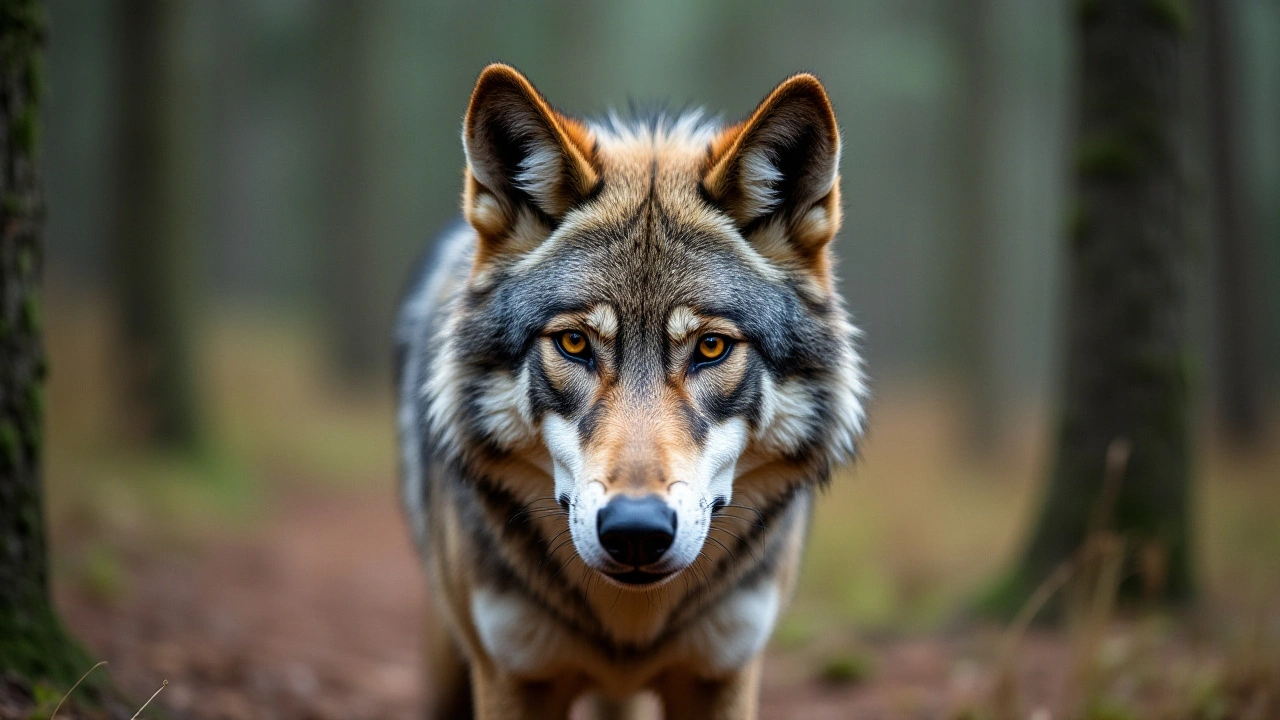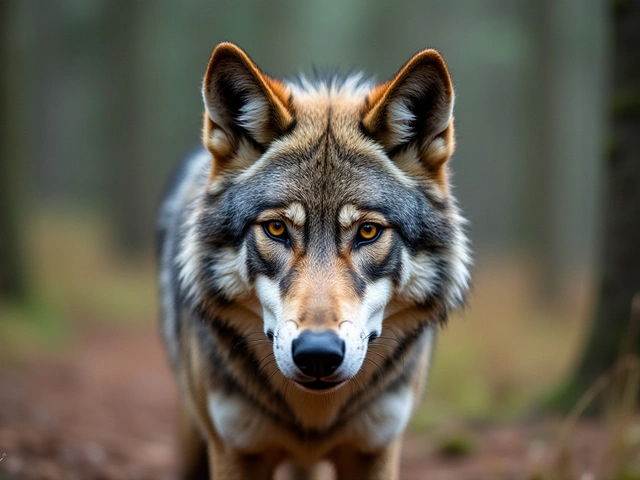Introduction: A Thorny Debate in European Wildlife Conservation
The European Union finds itself at the crossroads of a heated debate regarding the conservation status of the European grey wolf, a symbol of the continent's wildlife renaissance. The potential downgrading of the wolf's protection status from 'strictly protected' to 'protected' under the Bern Convention raises passionate arguments from all sides. The prospect of allowing routine culling and hunting of wolves, as advocated by some sectors, is seen as a solution to livestock protection, while environmentalists fear this will undermine decades of conservation success. With contrasting viewpoints, a resolution appears both crucial and complex.
The Proposal: What It Entails
The European Commission is contemplating a move based on a non-peer-reviewed report that suggests a revaluation of the protection status of the European grey wolf. If approved, this shift could permit more leniency in managing wolf populations, including culling practices. This proposal stems from demands by farming lobbies who argue that the growing number of wolves threatens livestock. Conversely, green groups and environmentalists see this as a dangerous retreat from conservation goals achieved over the decades. We are at a juncture where the decision will not only affect wildlife but also set a precedent in balancing human interests with ecological stability.
Environmental Concerns: The Role of Large Predators
Enrique Perez, chairperson of the European Alliance for Wolf Conservation (EAWC), and numerous scientists have highlighted the irreplaceable role wolves play in maintaining ecological balance. These large predators are key to controlling herbivore populations, which can prevent overgrazing. Their presence is critical in promoting biodiversity and helping ecosystems recover from the brink of decay, thereby also combating climate change and deforestation. The coalition stresses that any rollback in protections could reverse the gains made in reinstating wolves as vital caretakers of natural habitats.
Farmers' Perspective: Livestock Losses and Economic Impact
The resurgence of wolves in Europe has reignited age-old conflicts between humans and predators. For farmers, the return of these apex predators spells trouble, with thousands of livestock, primarily sheep and goats, falling prey annually. In France alone, over 11,000 animals were reported killed in 2020, contributing to palpable tension and financial strain despite compensatory measures from governments. Farmers argue that the current mitigation strategies, such as electric fences and livestock guard dogs, are not adequately addressing the problem. Niall Curley from Copa-Cogeca asserts that more proactive management strategies, including potential culling, are necessary for protecting rural economies.
The Political Arena: Divided Support and Opposition
Politically, the issue has garnered divergent stances within the EU. President Ursula von der Leyen has vocally supported the proposal, a stance partly influenced by a personal experience of losing her pony, Dolly, to a wolf in 2022. Her support reflects a broader backing from political quarters such as the centre-right European People’s Party (EPP), aligning with the farming lobby's call for action. However, opposition is growing, particularly from green groups and some member states like Ireland and Spain, who remain staunchly against the proposition, describing it as a retreat from moral commitments to biodiversity conservation. The debate intensifies as EU ministers prepare to cast their votes, with significant implications for future wildlife and conservation strategies.
Scientific Advocacy: Statements from the Academic Community
In response to the EU's proposals, a significant uptick in advocacy from scientific communities has been observed. Hundreds of academics have signed statements emphasizing the ecological benefits of wolves and the necessity of strict protection in the face of unverified data presented by the Commission. These statements call for more robust, peer-reviewed research to guide any decisions regarding wildlife management, cautioning against policy changes driven by insufficient data. These scientists argue that large predators offer invaluable services to natural ecosystems that ultimately serve human interests by regulating species that affect agriculture and forestry.
Conclusion: Seeking Balance in Conservation Policy
The outcome of this debate on the European grey wolf's status goes beyond a simple policy decision; it's about setting a course for future wildlife conservation in the face of human development pressures. Striking a balance between conserving ecosystems and addressing agricultural concerns remains the critical challenge for the EU. The decision to either maintain or downgrade protection levels of wolves not only embodies the struggle between conservation and human activity but also reflects broader environmental challenges faced globally. It's a testament to how intertwined our fates are with the wildlife we share this planet with, and finding the path forward requires nuanced consideration of all facets involved.



Comments
When we dissect the EU's proposal through the lens of ecosystemic services, we encounter a labyrinth of trophic cascade dynamics and anthropogenic pressure gradients that merit rigorous scrutiny. The contention hinges on whether the propriety of downgrading protection aligns with the meta‑regulatory frameworks of the Bern Convention, or whether it precipitates a regression in the resilience metrics we have meticulously quantified over the past decade. From a conservation genetics standpoint, maintaining a viable effective population size is paramount to forestall inbreeding depression, a nuance often eclipsed by short‑term livestock economics. Moreover, the implementation of mitigation protocols such as livestock guardian dogs and selective fencing should be calibrated using evidence‑based risk assessments rather than anecdotal grievances. I encourage fellow stakeholders to consult the latest meta‑analyses on predator‑prey interaction models before endorsing any policy shift, as the ramifications extend well beyond the immediate pastoral corridors.
Hey Anuj, that's a solid breakdown – love the blend of tech talk and practical advice. It’s easy to feel discouraged when headlines scream "cull" but remembering the bigger picture helps keep the optimism alive. If we keep pushing for collaborative solutions, farmers and conservationists can find common ground without sacrificing hope. Let’s keep the dialogue constructive and focus on data‑driven compromises that benefit both sides.
This whole thing reeks of short‑sighted lobbying. Downgrading protection under the guise of “livestock safety” is just a thinly veiled excuse for culling a keystone species that the EU pretended to protect. The scientific community’s warnings are being ignored in favor of appeasing a vocal minority, which betrays the very spirit of the Bern Convention. It’s a forgettable, toxic move that will have cascading ecological consequences, and it shows a blatant disregard for the hard‑won successes of wolf recovery across Europe.
The wolves are the wild's untamed heartbeat
In contemplating the delicate dance between humans and the apex predators that roam our shared landscapes, one cannot help but reflect on the ancient philosophical notion that harmony arises from mutual respect, not domination. The wolves, with their pack dynamics and territorial stewardship, embody a living testament to the balance that ecosystems inherently strive to maintain. When we intervene with policies motivated by immediate economic pressures, we risk unraveling the intricate tapestry of interdependencies that have evolved over millennia. Each wolf lost is not merely a statistic but a silent echo of altered nutrient cycles, shifted prey behavior, and diminished biodiversity. The philosophical underpinnings of conservation demand that we assess our actions through the prism of long‑term stewardship rather than short‑term gain. Acknowledging the ethical dimension of our choices invites a broader societal dialogue that transcends agricultural concerns and ventures into the realm of moral responsibility. Moreover, the cultural narratives surrounding wolves in European folklore remind us that these creatures have long been woven into the fabric of our collective identity. Diminishing their presence severs a thread that ties us to our ancestral reverence for the wild. As we navigate the policy arena, let us remember that ecological integrity and human livelihood are not mutually exclusive; they are interlaced facets of a resilient system. By embracing adaptive management practices, investing in non‑lethal deterrents, and supporting farmer‑led conservation initiatives, we can craft a path that honors both the pastoral and the predatory. In the end, the true measure of our civilization may be reflected not in the number of wolves we cull, but in the wisdom with which we coexist with them, fostering a legacy of coexistence for generations to come.